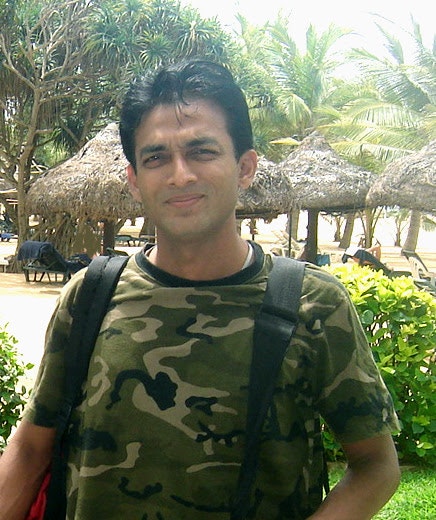Winner of the Whitley Award donated by The Scottish Friends of the Whitley Fund for Nature
Biologist Zahirul Islam has been working to protect sea turtles in Bangladesh since he first visited the beaches and coral reefs of St. Martin Island as an 18 year old zoology student, when he says the place entered his soul and stimulated a life long passion for the marine environment and sea turtles in particular.

Having played a key role in Bangladesh’s first ever project for the conservation of sea turtles from 1996 to 1998, Zahirul founded research and conservation organization MarineLife Alliance in 1999 to conduct research on ocean resources, becoming a Whitley Award finalist and Associate Award winner in 2008. This early support helped fund the first satellite tracking of sea turtles in Bangladesh to monitor and gather vital research data, particularly about their migratory routes.

Five of the world’s seven marine turtle species are found in the subtropical coastal and marine habitat of the Bay of Bengal including waters of Bangladesh, where pristine sandy beaches also offer ideal nesting rookeries. However although given national protection in 2012, Bangladesh’s sea turtles remain under threat from entanglement in offshore fishing nets, exploitation for their meat and eggs and habitat fragmentation caused by indiscriminate tourism and coastal development, including plans for a new deep sea port at Sonadia Island, a sea turtle nesting hotspot.

Zahirul’s work focuses on the coastal and marine habitat of Cox’s Bazar, a diverse ecosystem that is also a critical habitat for migratory seabirds, whales, dolphins and sharks and, as a keystone species, sea turtles can help offer wider protection of marine habitats and coastal nurseries with a long term vision of creating an offshore marine reserve where other marine fauna can flourish. Zahirul and his team are working to actively protect turtles along this 140 km stretch of coastline through community-led field interventions including ongoing monitoring and protection of sea turtle nesting sites (olive ridley and green turtle). Raising awareness among the public and decision makers to establish wildlife conservation and monitoring systems will ensure offshore fishermen and the local people will become major stakeholders, providing new hope for the future of Bangladesh’s sea turtles.

Zahirul’s Whitley Award winning project aims to:
- Extend his monitoring programme to cover all 220 km of Bangladesh’s beaches.
- Provide data for the establishment of protected areas for turtles both on and off shore.
- Train fishermen in techniques to reduce the number of turtles caught accidentally.
Why it matters:
- Cox’s Bazar, the world’s longest sandy beach, provides 140 km of valuable nesting habitat for threatened olive ridley and green turtles.
- There is no current mechanism to protect these beaches from indiscriminate development.
- Sea turtle populations are declining across the world.
Zahirul’s Whitley Award acceptance speech
Winner update:
Continuation Funding 2017:
Expanding sea turtle conservation in the Bay of Bengal
£70,000 over 2 years
Five of the world’s seven marine turtle species are found in the subtropical coastal and marine habitat of the Bay of Bengal, where sandy beaches offer ideal nesting rookeries. Bangladesh’s sea turtles remain under threat from entanglement in offshore fishing nets, exploitation for their meat and eggs and habitat fragmentation caused by indiscriminate tourism and coastal development. The project aims to expand Zahirul’s earlier successful approach over the whole Bangladesh coast and into neighbouring Myanmar (a first!). The team will use rapid boat surveys along the south-central and west coast and drones for remote areas to survey and map turtle habitat. Once identified, nesting beaches will be included in regular monitoring and conservation measures in conjunction with local communities. The team will train Forest Department officials, and Defence and Fisheries officers, and bolster awareness by establishing an education and research centre. By the end of the project the status of turtles nesting along the entire coastline of Bangladesh will be known and action taken to safeguard turtles both on land and sea.



